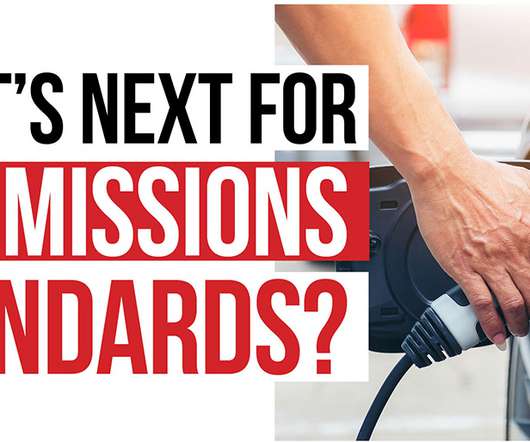EEA TERM Report Finds Efficiency Gains of Clean Vehicle Technology Being Offset By Ongoing Increases in Travel
Green Car Congress
APRIL 28, 2010
While technological advances are producing cleaner vehicles, more and more passengers and goods are travelling further distances in Europe, thereby offsetting efficiency gains. Air travel within the EU remained the fastest growth area, increasing 48% between 1997 and 2007. Tags: Climate Change Emissions Europe Policy.

















Let's personalize your content